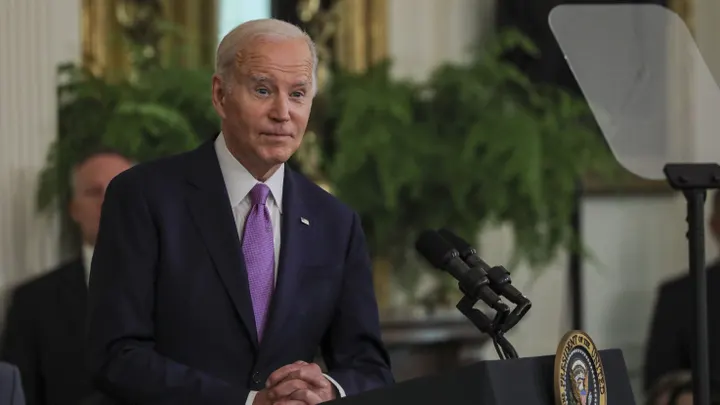
“
President Biden’s ambitious plan to reshape the Democratic primary process is encountering significant obstacles as state leaders across the country express their concerns and opposition. The proposal, unveiled in December, seeks to bring more diversity to the early primaries by making South Carolina the first primary state, displacing long-standing leaders New Hampshire and Iowa.
However, bipartisan hesitations and Republican resistance are casting doubt on the feasibility of implementing this new calendar for the 2024 primaries.
In New Hampshire, over 20 Democratic leaders have voiced their apprehensions about the plan and urged President Biden to reconsider. They fear that relinquishing the state’s status as the first primary state could harm their party’s chances in the 2024 election. Republican Governor Chris Sununu has been steadfast in his commitment to block any attempt to move the primary from New Hampshire.
Similarly, Georgia’s Republican Secretary of State, Brad Raffensperger, took action in May by scheduling the state’s primary for March 12, directly challenging Biden’s push to move it to an earlier date. Raffensperger’s move exemplifies the staunch resistance among Republican leaders to the proposed changes.
Iowa’s lawmakers have also been actively working against President Biden’s plan to delay their caucus. Democrats in the state have proposed a compromise that would allow Iowa to hold its caucus first, as usual, but delay the announcement of vote results until May. However, no final decision has been reached on this matter.
While Democrats in South Carolina, Nevada, and Michigan are supportive of President Biden’s plan to move up their primaries, Republican opposition remains a formidable force that could potentially derail or significantly delay the proposed changes.
When asked for comment, the Biden campaign directed inquiries to the Democratic National Committee (DNC), which has yet to respond. Jim Roosevelt, co-chairman of the DNC’s Rules and Bylaws Committee, expressed his understanding of the internal opposition but remained optimistic about the potential for reforms.
Roosevelt believes that the time when a sitting president is in office presents the best opportunity to bring about fundamental changes to make the primary process more inclusive and representative.
As the resistance from state leaders mounts, the fate of President Biden’s primary plan hangs in the balance. The opposition from both Republican and Democratic leaders illustrates the complexities and challenges associated with altering a long-standing tradition in American politics.
With the 2024 election on the horizon, the battle for primacy in the primary season rages on, shaping the future of the Democratic Party’s nomination process.”
Source Fox News

